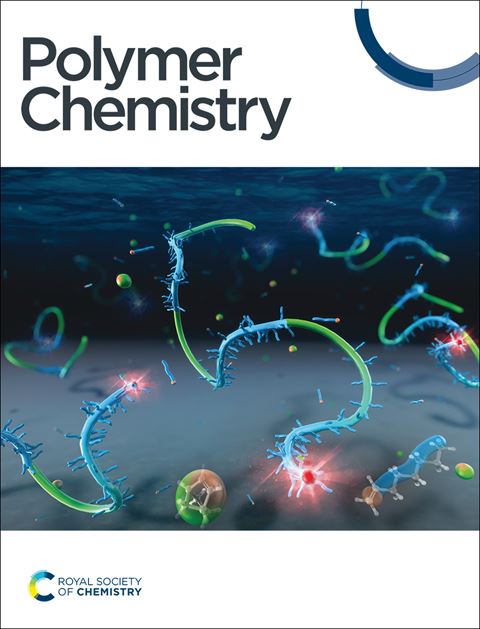Chemical modification of poly(isosorbide carbonate)-based copolymers with boronic acids and the ammonolysis of the modified copolymers†
IF 4.1
2区 化学
Q2 POLYMER SCIENCE
引用次数: 0
Abstract
Here, the functionalization of bio-based polycarbonates by post-polymerization modification with boronic acids was demonstrated as an effective method for tuning the thermal and physical properties of original polymers without losing their original nature, i.e., the degradability into monomers and urea by ammonolysis. Poly(isosorbide carbonate)-based copolymers with hydroxy groups in the polymer main chain were modified using low-molecular-weight boronic acids and polymers containing boronic acids, respectively. The modifications significantly changed the glass transition temperature, solubility, and mechanical properties. In particular, the use of modifiers with two or more boronic acids noticeably varied the mobility of the polymer, resulting in cross-linked structures. All the modified polymers, including cross-linked polymers, were successfully degraded to monomers and urea by aqueous ammonia treatment. Thus, this study provides a design guideline to control the physical properties of PIC copolymers by balancing their stability as a polymer material and their degradability after use.

求助全文
约1分钟内获得全文
求助全文
来源期刊

Polymer Chemistry
POLYMER SCIENCE-
CiteScore
8.60
自引率
8.70%
发文量
535
审稿时长
1.7 months
期刊介绍:
Polymer Chemistry welcomes submissions in all areas of polymer science that have a strong focus on macromolecular chemistry. Manuscripts may cover a broad range of fields, yet no direct application focus is required.
 求助内容:
求助内容: 应助结果提醒方式:
应助结果提醒方式:


